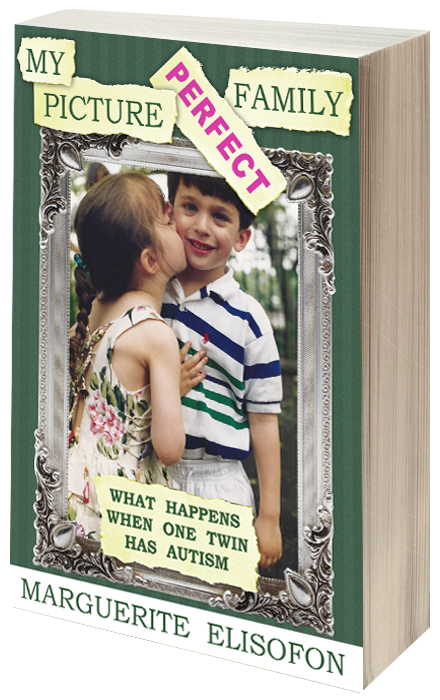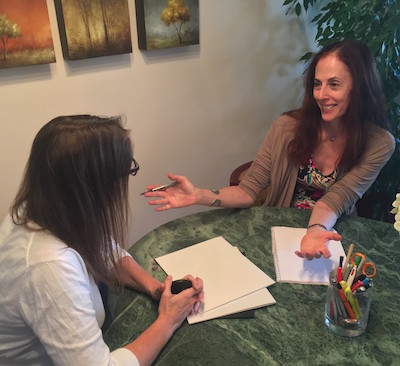 How does a privileged white mother explain to her autistic daughter about racism in America? How can I help her to understand the horrifying on-camera murder of a black man by a white police officer?
How does a privileged white mother explain to her autistic daughter about racism in America? How can I help her to understand the horrifying on-camera murder of a black man by a white police officer?
These would be difficult questions to address with a neurotypical person, let alone with my carefully sheltered daughter with autism. Conversations about America’s long history of inequality from slavery to the present never happened at Samantha’s special ed schools. But her own life experience has taught her enough about cruelty and inequality to understand the basic ingredients of racism.
The names George Floyd, Eric Garner, Trayvon Martin and Rodney King don’t have the same meaning for Samantha as they do for neurotypical people who read the newspapers and watch television. (She avoids both!) What Samantha DOES understand on the most basic—and perhaps most important—level is that we are all equally human regardless race, gender or sexual orientation.
For Samantha, these are not empty words learned from a script or repeated by rote. Growing up with autism, my daughter was bullied, mistreated and made to feel “less than” her neurotypical peers. Samantha knows how it feels to be rejected. While discrimination against people with disabilities is not nearly as extreme as systemic, institutionalized racism—recently culminating in a man pleading for his life while a policeman ruthlessly crushed his neck on the sidewalk— Samantha can identify with being on the receiving side of prejudice, stigmatizing, marginalizing and other profoundly unfair every day experiences in our supposedly civilized society.
Neither autism nor racism are simple matters. But the anger, pain and anxiety associated with both are bone deep (rather than skin deep). That’s why Samantha and her disabled peers must be “included” when discussing the difficult events of the moment. She needs to understand how heartfelt Black Lives Matter protesters can be peaceful, and she needs to understand  how looting is related to rage. I have explained to Samantha that the protesters are honoring George Floyd and trying to prevent future atrocities of this type. The looters are venting their built up fury.
how looting is related to rage. I have explained to Samantha that the protesters are honoring George Floyd and trying to prevent future atrocities of this type. The looters are venting their built up fury.
The world has become overwhelming. The pandemic is still killing people in NYC and all over the planet. Some people lucky enough to remain healthy are nevertheless losing their businesses and their homes. Others stand on food lines to feed their families. Front line workers—many of them minorities—risk their lives daily to keep our country running. While they can pay their rent and put food on the table, they are also taking the ultimate risk in service of others.
After almost three months of staying home in order to “flatten the curve” of coronavirus infections, it’s easy to see how protests are drawing crowds in cities everywhere. Social distancing has gone out the window, for the moment. Does that mean the rates of coronavirus will rise again?
Our collective anger has built into a destructive rage. The pandemic and the public, brutal killing of a black man by a white police officer—while three additional white officers stood guard—is too much heartbreak for me to process and endure. For people on the spectrum, hate crimes and arbitrary violence are especially terrifying and confusing because they’ve been carefully taught to trust and abide by the law. They’ve been taught to act polite and deferential with the police, who are supposed to be their protectors.
 Most shocking for Samantha was the lack of empathy displayed by police. There was a time when her autism made empathy difficult for her and she worked very hard to improve it.
Most shocking for Samantha was the lack of empathy displayed by police. There was a time when her autism made empathy difficult for her and she worked very hard to improve it.
“Why would a police officer do that?” she asks now, as upset and outraged as anyone else. Today her heart goes out to all people who experience the special pain of being rejected for the way they were born.
In the words of Lady Gaga:
“You’re black, white, beige, chola descent
You’re Lebanese, you’re Orient
Whether life’s disabilities
Left you outcast, bullied, or teased
Rejoice and love yourself today
‘Cause baby you were born this way.”






 Marguerite Elisofon is a New York City writer and the author of My Picture Perfect Family, a memoir about how her family navigated life with a child on the autistic spectrum before the internet and support groups existed. She also blogs about parenting young adults and disability related issues in The Never Empty Nest. Her writing has been featured in a variety of publications, including Time and NY Metro Parents magazine, and her family’s story has been featured by the NY Post, Fox News, The Daily Mail, and on Jenny McCarthy’s Dirty Sexy Funny radio show. A Vassar graduate, Marguerite was born and raised in New York City, where she still lives with her husband, Howard, in their mostly-empty nest. She is available to speak about a wide variety of issues relating to twins, parenting, and autism.
Marguerite Elisofon is a New York City writer and the author of My Picture Perfect Family, a memoir about how her family navigated life with a child on the autistic spectrum before the internet and support groups existed. She also blogs about parenting young adults and disability related issues in The Never Empty Nest. Her writing has been featured in a variety of publications, including Time and NY Metro Parents magazine, and her family’s story has been featured by the NY Post, Fox News, The Daily Mail, and on Jenny McCarthy’s Dirty Sexy Funny radio show. A Vassar graduate, Marguerite was born and raised in New York City, where she still lives with her husband, Howard, in their mostly-empty nest. She is available to speak about a wide variety of issues relating to twins, parenting, and autism. 